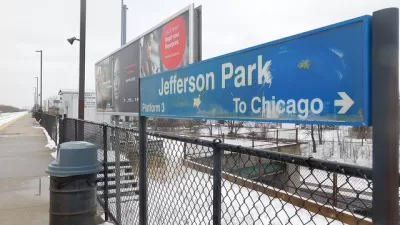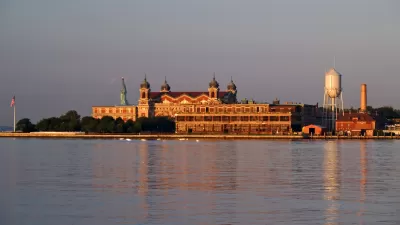In November, the city of Poway, California rejected a veterans' housing project. The story is informative for the way communities rally to obstruct the addition of low-income housing.
Maya Srikrishnan recounts a recent decision by the Poway City Council to deny a proposal by Habitat for Humanity San Diego to build "22 for-sale, affordable homes for veterans on a roughly 2.5-acre piece of land that the city is legally bound to use for subsidized housing."
The fact that the project was intended for veterans reveals the reasoning behind community opposition to low-income housing projects—and a much more common narrative. "The opposition in Poway listed concerns over crime, density, funding, parking and traffic – issues that quell low-income housing developments throughout the region," writes Srikrishnan.
Srikrishnan argues that Poway's decision, in the context of the needs of the nation's veterans, stands above other examples of NIMBYism in articulating the fear of low-income housing. The article includes the political back in forth between the members of the community opposed the project, the case made to address some of the fears about the project, and testimony from some of the veterans hoping to see the project get built.
FULL STORY: ‘We Do Not Owe Them a House in Poway’

Planetizen Federal Action Tracker
A weekly monitor of how Trump’s orders and actions are impacting planners and planning in America.

Maui's Vacation Rental Debate Turns Ugly
Verbal attacks, misinformation campaigns and fistfights plague a high-stakes debate to convert thousands of vacation rentals into long-term housing.

Restaurant Patios Were a Pandemic Win — Why Were They so Hard to Keep?
Social distancing requirements and changes in travel patterns prompted cities to pilot new uses for street and sidewalk space. Then it got complicated.

In California Battle of Housing vs. Environment, Housing Just Won
A new state law significantly limits the power of CEQA, an environmental review law that served as a powerful tool for blocking new development.

Boulder Eliminates Parking Minimums Citywide
Officials estimate the cost of building a single underground parking space at up to $100,000.

Orange County, Florida Adopts Largest US “Sprawl Repair” Code
The ‘Orange Code’ seeks to rectify decades of sprawl-inducing, car-oriented development.
Urban Design for Planners 1: Software Tools
This six-course series explores essential urban design concepts using open source software and equips planners with the tools they need to participate fully in the urban design process.
Planning for Universal Design
Learn the tools for implementing Universal Design in planning regulations.
Heyer Gruel & Associates PA
JM Goldson LLC
Custer County Colorado
City of Camden Redevelopment Agency
City of Astoria
Transportation Research & Education Center (TREC) at Portland State University
Jefferson Parish Government
Camden Redevelopment Agency
City of Claremont





























